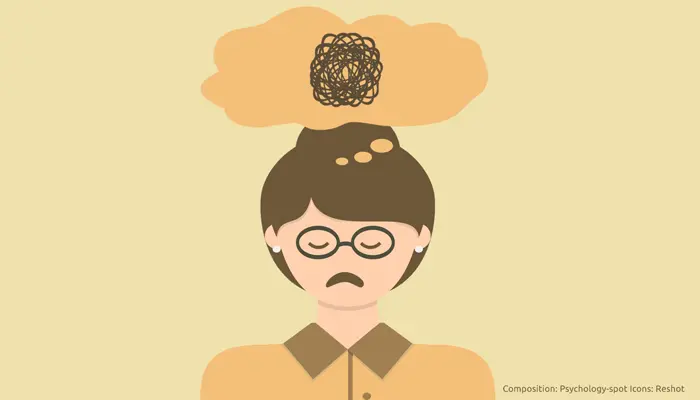
The anxiety disorder is basically a state of diffuse concerns that normally a person cannot explain. Usually when we talk about anxiety we’re not referring to a specific fear for something outside ourselves but at the expression of some kind of internal emotional conflict.
Roughly, we can talk about two types of anxiety: anxiety trait and the state of anxiety. When we talk about the anxiety trait we refer to a person who from the very early days of his/her life has felt anxiety, and this has become a perennial companion throughout life (usually these people have a temperament that leads to action very quickly in most diverse situations, and are easily excitable and find also difficult to relax). On the contrary, when it comes to the state of anxiety we usually refer to an event (or many), that causes the person to respond anxiously in specific moments of life.
The good news are that the symptoms of anxietycan be reversed, often without needing to use psychotropic drugs, but only applying few simple strategies.
1. Take your time to undertake everyday tasks. Many anxious people are constantly moving from one place to another; eating without sitting at the table, doing two or three things at once. The problem with this lifestyle, being always in a hurry, is that our brain is constantly receiving feedback signals sent by our body, and in this way, the psychomotor agitation to which we’re submitted tells the brain that we’re hasty and anxious, which makes the brain reacts increasing the levels of anxiety. When we face the daily life with anxiety and haste, we are creating a vicious cycle that creates more and more anxiety. So the first step to fight anxiety is focused on reducing our daily rhythm.
2. Stop the repetitive body movements typical of anxiety. When we are anxious we tend to play nervously with the objects all around us, we constantly move a foot, we walk form a side to another … These behaviors are perceived by our brain which can only exacerbate our anxiety. Therefore, it is important to pay attention to the appearance of these movements and learn to control them consciously. Only with this I would say that you can reduce anxiety by 20%.
3. Do not abandon your tasks incomplete. One of the things that increases our state of anxiety is being conscious that we have pending tasks. Often we simply postpone tasks because we don’t want to face them, so we end up accumulating many of them and these become soon an unnecessary source of tension. When you face the tasks progressively at the time they appear, you’ll be removing a source of anxiety from your life.
4. Learn to say “no”. Anxiety often appears because we do not know how to say “no” and end up filling our days with tasks that don’t even allow us enjoy a simple free hour. The person prone to anxiety must learn to prioritize, determining which tasks are most important and what’s definitely not worth the effort. We must remember that: relationships, friends and the family are important in the same way that it is to be an efficient worker, but to achieve this we need to be psychologically healthy.
5. Reserve at least one hour everyday to the activities that you like. Very often happens that anxious people don’t find time for themselves, and this generates some frustration, because we usually don’t like the majority of the everyday activities in which we’re involved. While we’re performing a task that we really like our brain releases substances that not only make us feel good but also help us to relax.
6. Change the way you think. Frequently, anxious people are also very rigid in their ideas, being perfectionists and worrying too much about the coming events. The truth, is that usually the concern about what will come next generates a lot of anxiety and restlessness, but eventually these fears have no basis. To manage anxiety sometime is not enough to regulate the body movements or undertaking tasks in a more leisurely way, it is also important achieving an internal change where we accept that life is changing and we can mistake, but what really matters is the journey, not the goal.
7. Learn relaxation techniques or join exercises of Yoga or Tai Chi. Sometimes, the strategies described above are not enough to eliminate anxiety because it has been established very deeply into our personality, then we can combine them with physical exercises like Yoga or Tai Chi, which benefit our body and at the same time allow us rediscover inner peace, or techniques such as progressive muscle relaxation or diaphragmatic breathing.
Finally, remember that to eliminate anxiety once and for all, it is vital to discover the real causes and learn to avoid them, or at least manage them in a more adequate manner.



